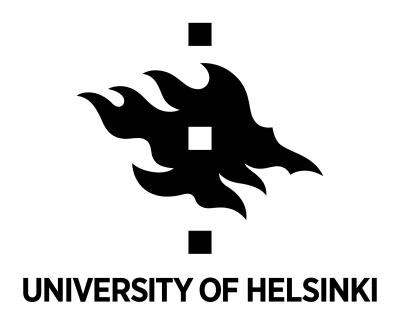
Master in Genetics and Molecular Biosciences
University of Helsinki

Key Information
Campus location
Helsinki, Finland
Languages
English, Finnish, Swedish
Study format
On-Campus
Duration
2 years
Pace
Full time
Tuition fees
EUR 15,000 / per year *
Application deadline
Request info
Earliest start date
Aug 2024
* for non-EU/EEA students.
Introduction
How are the building blocks of life arranged?
How do genes regulate the development and functioning of cells, tissues and organisms? How do molecules, cells and tissues function and communicate with each other, and how are their functions studied? Studying these questions is crucial for understanding molecular and cellular mechanisms, whose disruption can contribute to the onset and progression of various diseases.
These are also key issues studied in the Master's Programme in Genetics and Molecular Biosciences. You will acquire knowledge and skills in modern genetics and molecular biosciences. You can specialise in Biochemistry and Structural Biology, Cell and Developmental Biology, Genetics and Genomics or Molecular Analytical Health Biosciences.
Studying
How do genes regulate the development and functioning of cells, tissues and organisms? How do molecules, cells and tissues function and communicate with each other, and how are their functions studied? These are the key issues for understanding molecular and cellular mechanisms, whose disruption can contribute to the onset and progression of various diseases.
Researchers in the fields of genetics, genomics, cellular and developmental biology, biochemistry, structural biology, and biosciences of health are searching for the answers to these questions.
The Master's Programme in Genetics and Molecular Biosciences (GMB), provides you with understanding and skills in modern biosciences at the level of genes and molecules to cells and organisms.
You can specialise according to your interests in one of the four sudy tracks. Biochemistry and Structural Biology, Cell and Developmental Biology, Genetics and Genomics or Molecular Analytical Health Biosciences.
The programme is based on basic scientific research and tightly integrated with the experimental research carried out at the University of Helsinki.
Admissions
Curriculum
The Master's Programme Genetics and Molecular Biosciences is based on basic scientific research. In the programme, you will acquire knowledge and skills in modern genetics and molecular biosciences, which you will deepen in your chosen field of specialisation.
Students undertake modules to the value of 120 credits (cr; ECTS) according to their study track and personal study plan. The Master’s Degree consists of:
- Common Studies of the Programme 15-20 cr
- Study track specific studies: Compulsory and Elective courses 80 cr
- Master´s Thesis of 30 cr
- Free choice studies 15-25 cr
The curriculum of the programme will in principle enable completing 90 cr in 12 months (full-time studying and utilizing study opportunities during the summer months, and not including the Master’s Thesis research project). However, completing the Programme in 2 years is recommended, as it will give more flexibility with the optional studies.
Career planning or extracurricular activities may be included in the personal study plan. Students studying for qualification as biology teachers will have 60 cr of pedagogical studies in their degree (applies only to Finnish or Swedish speaking students).
Based on your own interests, you specialise by choosing between four study tracks:
- Biochemistry and Structural Biology
- Genetics and Genomics
- Cellular and Developmental Biology
- Molecular and Analytical Health Biosciences
Courses and teaching
The programme is tightly integrated with the experimental research carried out at the University of Helsinki in genetics, genomics, biochemistry, structural biology, and cellular and developmental biology. By combining course units, you will be able to acquire a broad-based understanding of biological phenomena and of the molecules that have an effect on health, including their interactions and functions at the levels of cells, tissues and organisms.
Courses include a variety of working methods: seminars, lectures, laboratory work, oral and written presentations, project work in small groups, independent studies and study circles formed by the students. The instruction will utilise digital learning environments.
These diverse teaching methods require active involvement from you. They will develop your ability to search, structure and present new information, as well as to draw conclusions. You will learn about the principles and methods of research during laboratory exercises, and about practical work in research groups and when writing your Master's thesis.
In addition to academic excellence, you will acquire general working life skills such as fact-finding, problem-solving, communication, project management and teamwork. You will acquire competence both for post-graduate studies in a Doctoral Programme and for expert positions immediately after gaining your Master's degree.
Master's thesis
All students undertake a Master’s Thesis (30 cr). You will learn how a research project proceeds, from planning the work and choosing adequate methods to performing the experiments and analysing the results.
The Thesis is typically based on an experimental research project carried out in one of the University’s research groups under the supervision of an experienced researcher. You will write your Thesis as if it were a scientific publication, critically describing, contemplating and discussing your results in the light of previous scientific literature on the topic.
In your written Thesis you are expected to demonstrate that you are capable of scientific thinking, that you master relevant research methods and that you are profoundly familiar with the topic of the Thesis. Completing the Thesis work shows that you have the required skills in project management and written scientific communication.
During the Master's Seminar, you will get support for all stages of the Thesis process and beyond, including data acquisition, communication skills, peer interaction and support, networking and career opportunities.
The Master’s Thesis of students studying towards biology teacher qualification can deal with pedagogical or didactic issues in biology teaching (applies only to Finnish or Swedish speaking students).
Students and student life
Student life and especially the student organisation culture is exceptionally rich and diverse in Finland. Also at the University of Helsinki, the student community is very active. More than 250 student organisations operate within the Student Union of the University of Helsinki (HYY), ranging from faculty and subject organisations to political and societal organisations, and from choirs and orchestras to sports and game clubs. Their activities include anniversary celebrations, academic dinner parties, cultural events, get-togethers and excursions.
As a student and member of the Student Union (HYY), you are entitled to many benefits and services. For example, affordable student housing, basic healthcare services, sports facilities and student-priced meals. You also get numerous discounts, for example on public transport fees across the country.
Gallery
Program Outcome
Why Genetics and Molecular Biosciences?
Upon completing the Master’s Programme in Genetics and Molecular Biosciences you will:
- have in-depth knowledge of genetics and molecular biosciences and of the experimental methods used in them.
- understand the characteristics and functions of genes and biomolecules at the cellular, tissue and organism levels.
- be able to analyse scientific knowledge critically and communicate it to different audiences.
- have the ability to produce new scientific information about the properties of genes, biomolecules and cells by means of experimental studies.
- be able to take advantage of existing research data and biological databases.
- have mastered good scientific practice and know-how to act accordingly.
- have the capacity for independent project management and problem-solving, as well as for maintaining and developing your own expertise.
- have the ability to work in multi-disciplinary and multicultural communities.
The Master of Science (MSc) degree gives you the ability to work in basic and applied research and to act as an expert in public administration, the private sector and biotechnology companies. It also makes you eligible for admission to postgraduate/doctoral studies.
Career Opportunities
After graduating from the Master’s Programme in Genetics and Molecular Biosciences, you will be well-prepared to continue with postgraduate studies or move on to a career, for example as an expert in public administration or in biotechnology companies. Your choice of specialisation and optional courses allows you to profile your skills in the direction you aim to follow for your future career.